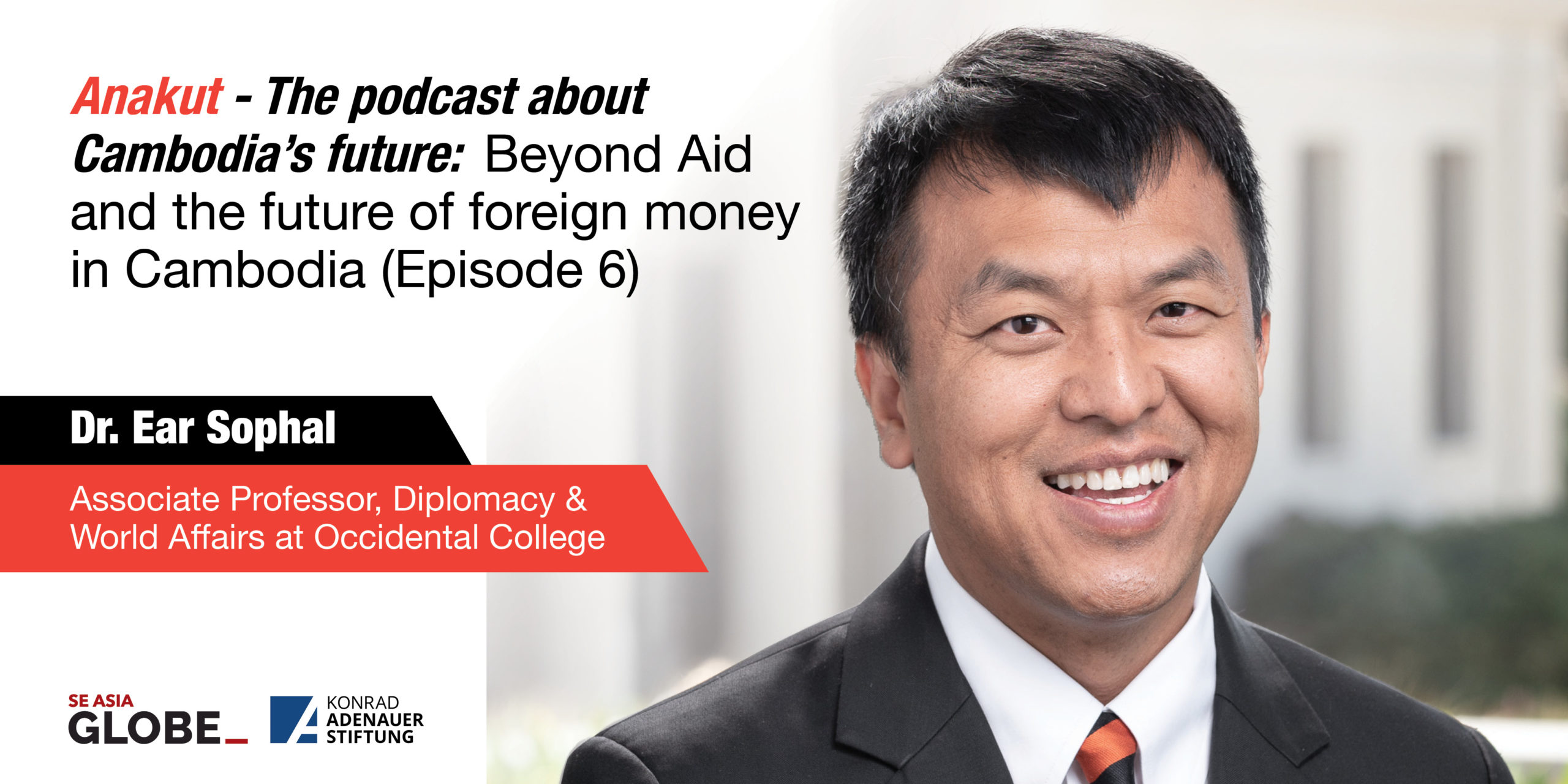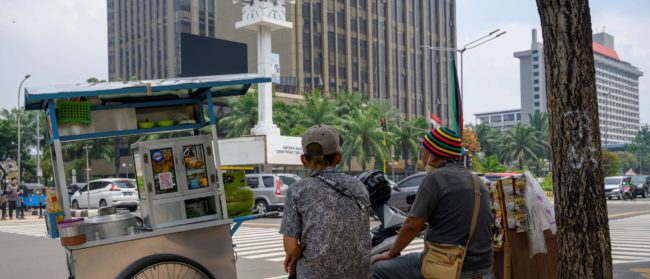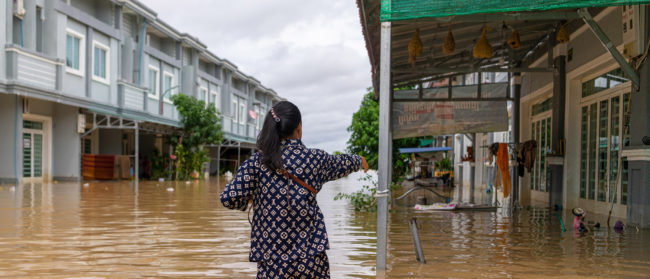Hello and welcome to another episode of Anakut!
This week, we’re looking beyond aid, to a time when a fast-growing economy pushes Cambodia well into middle-income status, past the aid packages of yesterday and on to … whatever comes next.
To learn more, we invited Ear Sophal, associate professor of diplomacy and world affairs at Occidental College in the US. Sophal is a long-time political observer of Cambodian politics and, directly to our theme today, is the author of 2013 book Aid Dependence in Cambodia: How Foreign Assistance Undermines Democracy.
The title alone should make clear some points of Sophal’s thesis on foreign assistance, but we wanted to get beyond that into the dollars and cents of the money flowing into Cambodia. The first order of business was to define our terms. When the money is flowing, it can be tougher at a glance to separate what we might call ‘aid’ from something entirely different – a much larger pool of money generally categorised as “other official flows”.
What most would think of as aid is known in the industry as official development assistance (ODA). But the catch-all category of ‘other’ flows of funding, known as OOF for short, includes a variety of initiatives that include commercial projects. Some, like those within frameworks such as China’s Belt and Road Initiative, can be massive in scale.
Sophal tells us this OOF category represents a higher-risk, higher-reward source of money that jibes with Cambodia’s aspirations to fast-track its development. Whatever else lies beyond aid, he thinks all signs are pointing to a closer embrace of the OOF.
In 2017 alone, according to the World Bank, Cambodia was the recipient of more than $855 million in net ODA funding. Since 1990, billions in ODA has been funnelled into the country by states like the US and Japan, supported by international institutions like the World Bank and International Monetary Fund. Some of this money was intended to rebuild the economy or address needs in health and welfare; other streams of funding were to build better governance.
Needless to say, this was money that came with expectations and strings attached, many of which have proved troublesome for the Cambodian government as it bats away charges of authoritarianism from donor states in the West. If bigger OOF is what lies after aid, it could avoid the political expectations of the style of giving that came before.
But that’s not to say this cash doesn’t come without its own strings. Sophal is quick to point out that looser, OOF-ier deals with foreign powers like China need to be carefully considered before signing on the bottom line, pointing to examples like the controversial Hambantota Port in Sri Lanka.
So will the post-aid landscape deliver on Cambodia’s development goals? Or will it get more than it bargains for with visions of easy money?
You’ll have to listen to find out. Scroll back up and hit play to hear what Anakut has in store.
All episodes of the podcast can be found on our Anakut webpage, Amazon, Apple, Google and Spotify.


